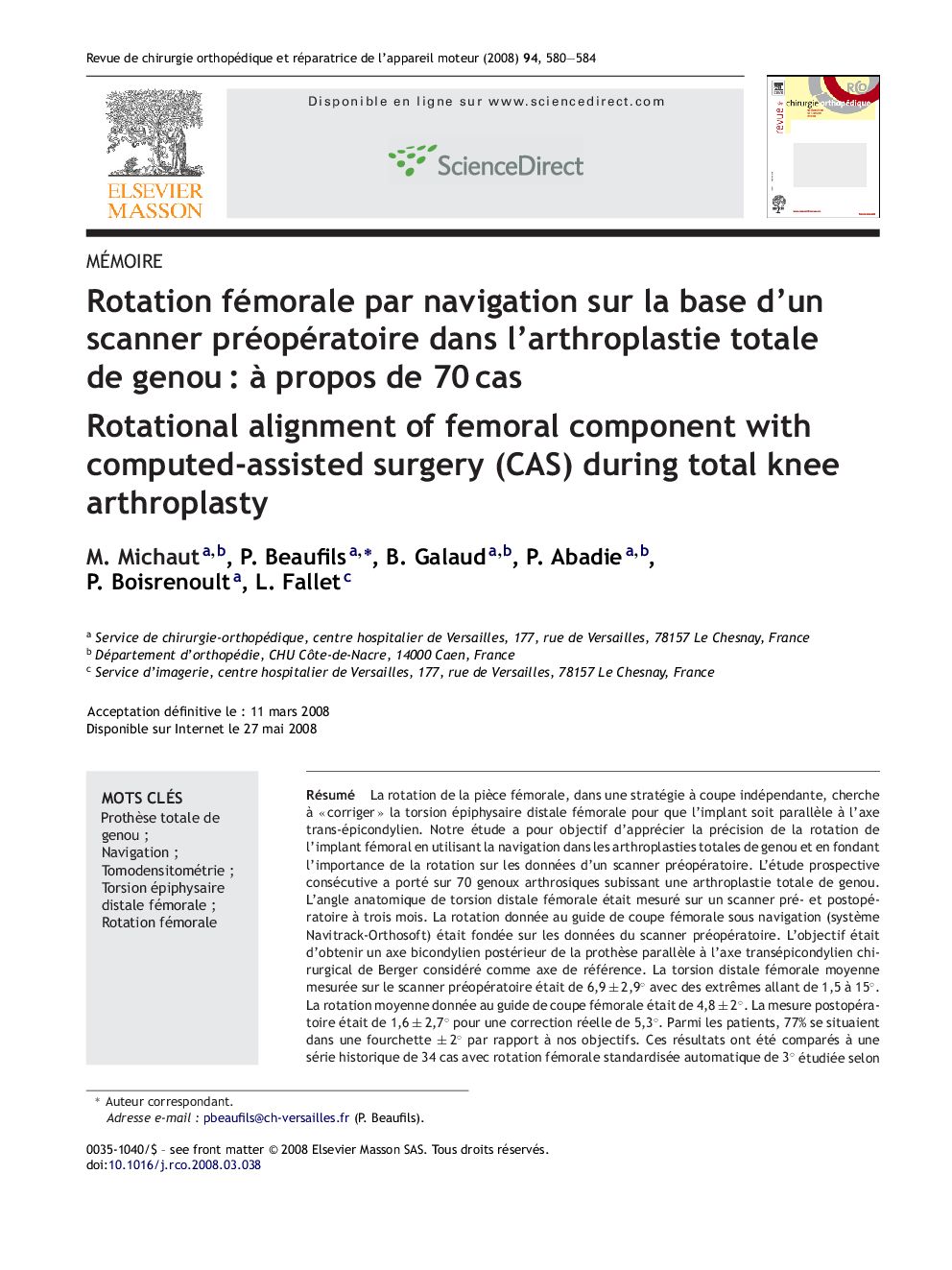| Article ID | Journal | Published Year | Pages | File Type |
|---|---|---|---|---|
| 4088215 | Revue de Chirurgie Orthopédique et Réparatrice de l'Appareil Moteur | 2008 | 5 Pages |
Abstract
When femoral and tibial bone cuts are performed independently, conventional instrumentation techniques seem insufficient to adapt patient's specific anatomy and prove inadequate to provide precise rotational alignment of the femoral component. Computed tomography scan is a reliable mean to produce precise preoperative measurements for proper DEFT. Moreover, it allows accurate postoperative control of the implant positioning. Other studies have documented a higher degree of precision in the rotational alignment of the femoral component with computed navigation systems in comparison to conventional instrumentation. However, in such studies, rotational alignment was always determined by computer navigation, and based on a controversial intraoperative identification (epicondyles and Whiteside's line referencing). We believe that preoperative CT scanning is a more favourable method. Actually, 77% of the cases reported satisfactory rotational alignment of the femoral component using this technique.
Keywords
Related Topics
Health Sciences
Medicine and Dentistry
Orthopedics, Sports Medicine and Rehabilitation
Authors
M. Michaut, P. Beaufils, B. Galaud, P. Abadie, P. Boisrenoult, L. Fallet,
